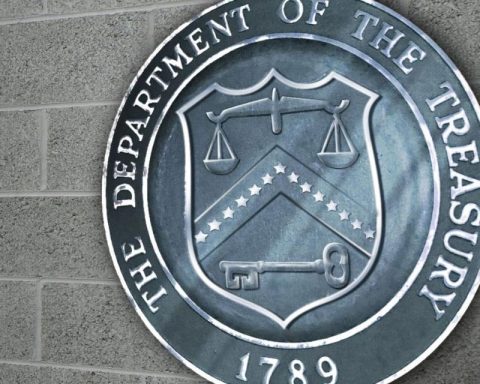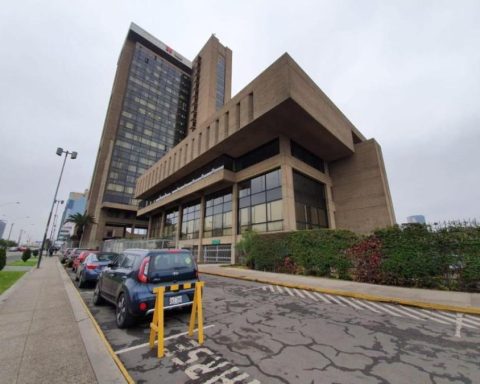November 15, 2024, 4:00 AM
November 15, 2024, 4:00 AM
Given the announcement of the national government for the release of fuel, through Supreme Decree (DS) 5271, An expert estimated that the cost of imported diesel would be Bs 14 per liter, according to current international prices, international freight rates and the supply of the dollar in the parallel market.
The calculation was carried out by energy analyst Germán Richter based on the provisions of the new DS for the import and marketing of diesel and gasoline in the domestic market, by private natural persons or legal entities. It should be noted that the regulations still lack regulation and it is expected that it will be announced next week.
Richter gave as an example a purchase in São Paulo, Brazil. Yesterday, the price of diesel oil in the international market is $us 1.17, to which must be added the cost of transport freight to the border, of $us 0.14 per liter, plus the transport freight of the border to the capital of Santa Cruz, $0.04 per liter. The sum of these prices results in $1.71 per liter, which at the official exchange rate (Bs 6.96) is Bs 11.90. But since currently currencies are only found in the parallel market (Bs 10.60) The cost would rise to Bs 14.
However, Richter considered that the DS contains “traps”, since it involves a series of obstacles such as setting the price, which will be in charge of the National Hydrocarbons Agency (ANH), and the collection of the Special Tax on Hydrocarbons and its Derivatives (IEHD), among others, which could lead to a series of procedures that would make the product more expensive for the final consumer.
“What does the ANH have to do with a private business? Both the ANH and the Ministry of Hydrocarbons and Deposits (YPFB) were created and are directed through their laws and decrees to protect natural resources. The ANH may have some type of control because there are hydrocarbons, but not establish the price. “Who are they to set the price?” Richter questioned.
Article 8 of DS 5271 states that “the ANH will establish prices based on the methodology approved by the Ministry of Hydrocarbons and Energy.”
Juan Pablo Demeure, president of the Federation of Private Business Entities of Cochabamba, said in an interview with EL DEBER that According to preliminary calculations, the cost for a liter of diesel should be between Bs 13 and Bs 14. “According to the preliminary calculation that various businessmen are having, in a possible direct import, the imported liter of diesel for use would cost a businessman or producer between Bs 13 and Bs 14, taking into account the parallel exchange rate, the international price of fuel and other logistical and bank transfer costs.”
Along the same lines, the state-owned YPFB reported that it makes its logistics company Botrading SA available for the import service of diesel and gasoline, at a cost of $1 per liter, to private individuals or legal entities. The current prices of subsidized fuel are Bs 3.74 for special gasoline and 3.72 for diesel oil.
Klaus Frerking, acting president of the Eastern Agricultural Chamber (CAO), pointed out that the price should be set by the market, despite what DS 5271 says in its Article 8.
“We as producers do not forget that we are price takers. The market defines the price with supply and demand. The market is what defines how much price an agricultural producer will have, That is why we need diesel so that this chain does not break and continues to function at the country level,” he clarified.
On the other hand, he announced that for today’s meeting with President Luis Arce a mixed system will be proposed for the marketing of fuels, since the State also participates with subsidized fossil fuels.
Juan Pablo Demeure, head of the private businessmen of Cochabamba, told EL DEBER five essential elements, which must be included in the regulations of DS 5271, to ensure that fuel imports are beneficial for both businesses, consumers and the environment.
The first is “establish clarity in quality requirements” because It is essential that imported fuels meet quality standards established by the ANH. “This ensures that products are safe and efficient for consumers and vehicles.”
Then there are the authorizations and permits because imports must also be supported by authorizations from the ANH and the Vice Ministry of Social Defense and Controlled Substances. “Simple and quick steps must be established to ensure that the importation is carried out in a legal and regulated manner, without losing logistical efficiency. This means de-bureaucratizing procedures and making them totally digital.”
The third point is prices and taxes because it is important to understand how the import will affect prices in the domestic market, especially compared to YPFB’s subsidized prices. “This can influence the competitiveness and economic viability of importing companies.”
Free competition must also be ensured because regulations must avoid processes that harm the import and marketing of fuels between private parties and the State.
And, finally, there is logistics because the ability to efficiently distribute fuels is crucial to encourage and help imports. “This includes supporting importers with YPFB’s current infrastructure. and avoid disruptions in the supply chain.”
Jean Pierre Antelo, president of Cainco, said that this regulation must be accelerated because the fuel is urgently needed. “We need this regulation to be agile, allowing the private sector to bring the fuel and give a response to the (productive) sectors that need it today.”
While Pablo Camacho, president of the National Chamber of Industries, stated that What is most “concerning” is the lack of access to dollars because it is what is going to be paid, and also the bureaucracy.















